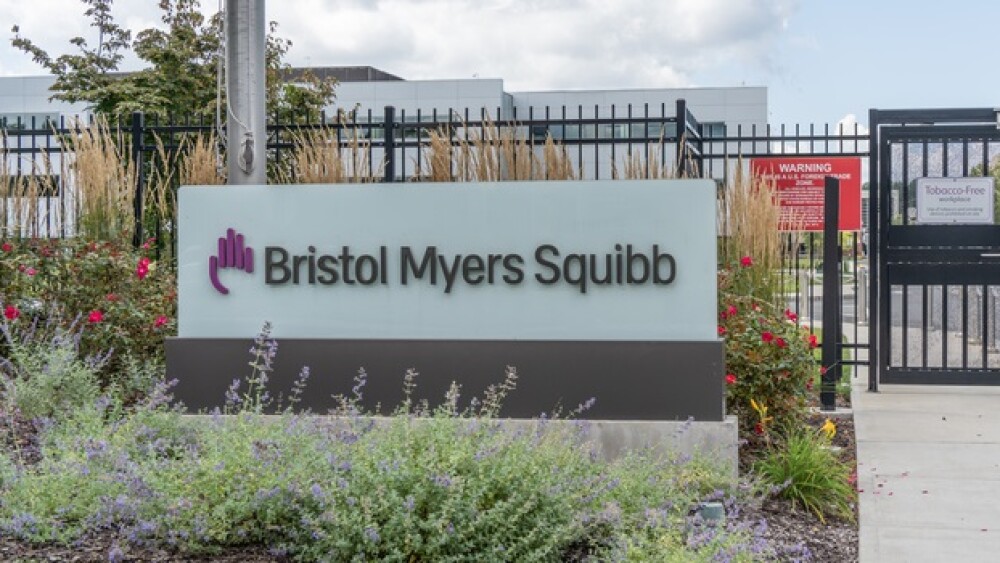The regulator has accepted Bristol Myers Squibb’s Opdivo and the chemotherapy cisplatin for priority review in patients with unresectable metastatic urothelial carcinoma, as well as Merck and Seagen’s first-line combo.
Pictured: Signage outside BMS site in New Jersey/iStock, arlutz73
Bristol Myers Squibb’s Opdivo is charging ahead seeking another indication. The FDA on Tuesday accepted the priority review of BMS’ application for the cancer drug in combination with cisplatin-based chemotherapy as a first-line treatment of adults with unresectable or metastatic urothelial carcinoma.
The combination has a PDUFA date set for April 5, 2024. The application is based on BMS’s Phase III results from its CheckMate-901 trial, which hit its primary endpoints of progression-free survival and overall survival.
The Opdivo combination reduced the risk of death by 22%, with 21.7 months of overall survival versus 18.9 months with chemotherapy alone. BMS also said that the risk of disease progression or death was reduced by 28%, with the median rate of progression-free survival (PFS) marked at 7.9 months compared to 7.6 months with those taking chemotherapy. This metric earned a p-value of p=0.0012, while the overall survival endpoint had a p-value of p=0.0171.
“The FDA’s acceptance of our application for Opdivo in combination with cisplatin-based chemotherapy represents important progress toward addressing the unmet need for options that may offer durable responses and improved survival for patients with metastatic urothelial carcinoma. There remains a clear need for efficacious first-line treatment options that may help improve outcomes for patients with this hard-to-treat disease,” Dana Walker, BMS vice president and global program lead of gastrointestinal and genitourinary cancers, said in a statement.
Opdivo is indicated for treating patients with advanced metastatic urothelial carcinoma but whose disease has progressed during or following platinum-based chemo or whose disease has progressed within 12 months of neoadjuvant or adjuvant treatment.
While BMS is advancing with the Opdivo combo, it is facing competition in the urothelial carcinoma sector. Late last month, the FDA accepted an sBLA for a combination of Merck’s Keytruda and Seagen’s Padcev to treat adults in the first line with locally advanced or metastatic urothelial carcinoma. The agency has set that combo’s PDUFA date for May 9, 2024.
The Keytruda and Padcev combo—when put up against chemotherapy—also significantly reduced the risk of disease progress or death by 55%, with a median PFS of 12.5 months against 6.3 months and a p-value of p<0.00001. In overall survival, the combo reduced the risk of death by 53% against chemo with a median overall survival of 31.5 months vs 16.1 months and netted a p-value of p<0.00001 as well.
Tyler Patchen is a staff writer at BioSpace. You can reach him at tyler.patchen@biospace.com. Follow him on LinkedIn.






